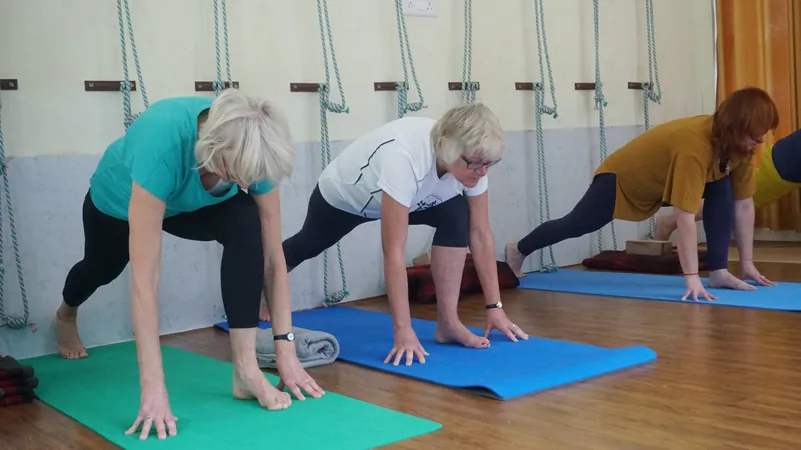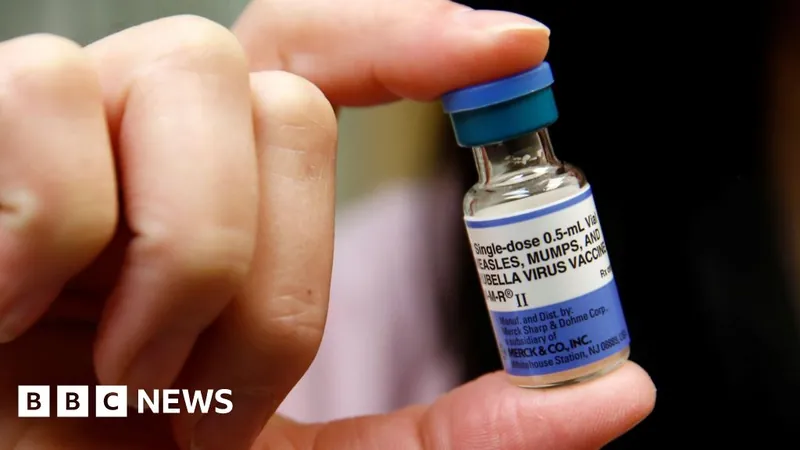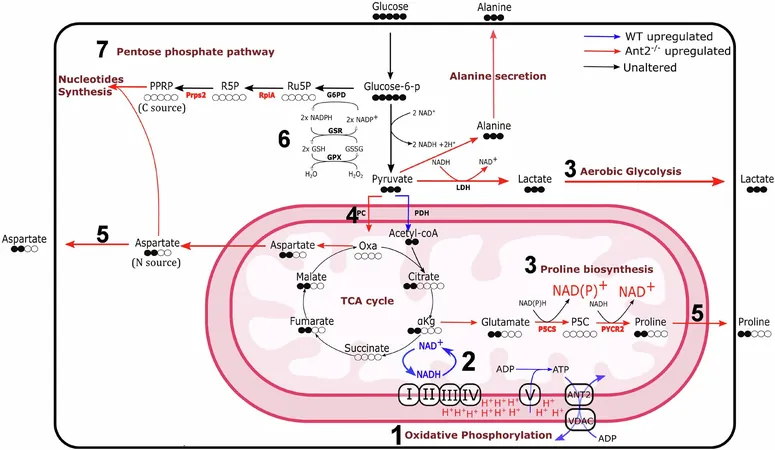
Revolutionary Study Reveals Exercise as Key to Survival in Colon Cancer Patients
2025-07-04
Author: Rajesh
A groundbreaking study has unveiled shocking findings: patients who participated in a structured exercise program slashed their risk of death by 37% and reduced the chance of cancer recurrence or new cancer development by 28%. This compelling research highlights the critical role of physical activity in combating colon cancer.
The CO.21 Study: A Collaborative Effort Leads to Hope
Named CO.21 (Challenge), this study was spearheaded by the Canadian Cancer Trials Group, the Waterloo Regional Health Network (WRHN), and the University of Waterloo's Center for Community, Clinical and Applied Research Excellence (CCCARE). This unique collaboration incorporated the UW WELL-FIT program, offering patients access to tailor-made, supervised exercise interventions specifically designed for those recovering from cancer treatments.
Carla Girolametto, Director of Research Operations at WRHN, expressed pride in their contribution: "This partnership shows how local hospitals can drive international research, creating significant global impact." Since 2009, WRHN's Cancer Center has supported 33 local patients, contributing to a much broader study involving 889 patients across 55 clinical sites.
Transforming Cancer Care: A Call for Change
Dr. Stacey Hubay, a leading oncologist at WRHN and principal investigator for the study, emphasized its transformative potential in oncology. "We've long recognized that exercise benefits cancer patients. However, these results—showing clear improvements backed by rigorous data—are revolutionary. Exercise should no longer be a mere recommendation; it must become an integral part of cancer treatment from diagnosis through survivorship."
From Local Initiative to Global Impact
The UW WELL-FIT program has been uplifting cancer patients for over two decades, now extending its benefits to a wider audience. The evidence is strong: exercise enhances both physical and mental well-being across the cancer journey. Following the success of the study, further initiatives are underway. Dr. Anupam Batra is leading research into how exercise can combat physical and cognitive decline in men with metastatic prostate cancer.
Julia Fraser, Ph.D. candidate and co-investigator at CCCARE, encapsulated this sentiment perfectly: "What CO.21 has proven is simple: exercise is medicine."
Personal Stories of Triumph
The study's impact extends beyond statistics; it is a life-altering experience for participants. Russel Espiritu, who was introduced to the CO.21 study during his chemotherapy in 2016, shared his journey: "Even before joining the study, I was active, but participating gave me the motivation to bounce back after tough treatments. The camaraderie with fellow patients made it all the more impactful."
Espiritu revealed, "Post-study, I rediscovered my passion for karate, proving that staying active during and after treatment not only managed side effects but revitalized my spirit. My hope is that physicians will prescribe exercise as a standard part of cancer care moving forward."
A Vision for the Future of Cancer Care
Reflecting on the broader implications, Dr. Nicole Thomson, WRHN's Vice-President of Quality, Research, and Patient Experience, highlighted the study's significance: "CO.21 serves as a powerful reminder of community hospitals’ potential in driving high-impact research. Our efforts illuminate a pathway for innovation, shaping cancer care not just locally, but on a national scale and beyond."





 Brasil (PT)
Brasil (PT)
 Canada (EN)
Canada (EN)
 Chile (ES)
Chile (ES)
 Česko (CS)
Česko (CS)
 대한민국 (KO)
대한민국 (KO)
 España (ES)
España (ES)
 France (FR)
France (FR)
 Hong Kong (EN)
Hong Kong (EN)
 Italia (IT)
Italia (IT)
 日本 (JA)
日本 (JA)
 Magyarország (HU)
Magyarország (HU)
 Norge (NO)
Norge (NO)
 Polska (PL)
Polska (PL)
 Schweiz (DE)
Schweiz (DE)
 Singapore (EN)
Singapore (EN)
 Sverige (SV)
Sverige (SV)
 Suomi (FI)
Suomi (FI)
 Türkiye (TR)
Türkiye (TR)
 الإمارات العربية المتحدة (AR)
الإمارات العربية المتحدة (AR)